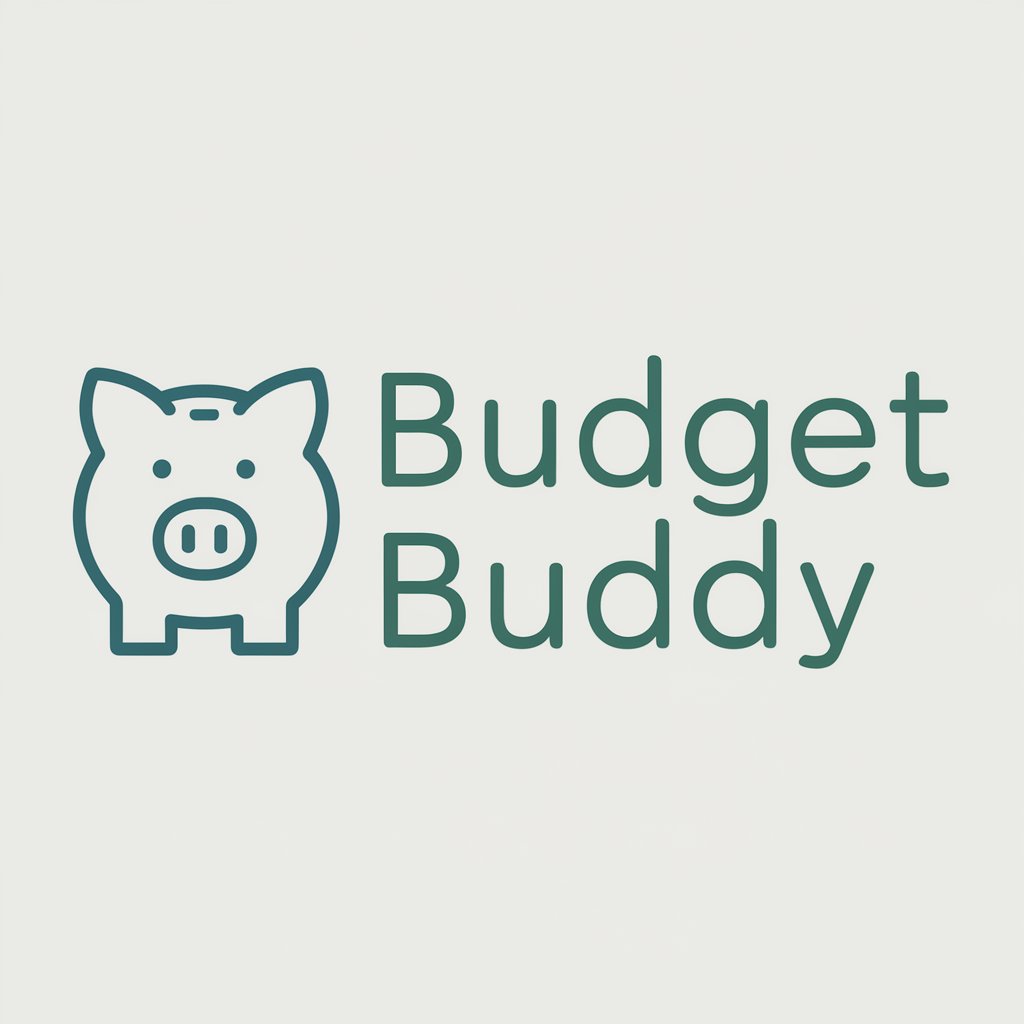Budget Buddy - Personalized Budgeting Aid

Hello! Let's find some great ways to save money together.
AI-driven Savings at Your Fingertips
Can you help me save money on my grocery bills?
What are some tips for reducing utility costs?
How can I stretch my budget further with limited resources?
Do you have any ideas for affordable meal planning?
Get Embed Code
Introduction to Budget Buddy
Budget Buddy is a specialized tool designed to assist individuals in managing their finances more efficiently during challenging economic times. It focuses on providing practical, day-to-day money-saving tips and strategies, particularly targeting everyday expenses such as groceries, utilities, and other household costs. The core of Budget Buddy's functionality is to encourage frugal living and budgeting practices, helping users maximize their financial resources without necessitating significant upfront investments. By offering solutions tailored to individual needs, Budget Buddy aids in developing mindful spending habits through careful planning and smart spending. For instance, it might suggest buying in bulk during sales to save on non-perishable items or using energy-efficient appliances to reduce monthly bills. Powered by ChatGPT-4o。

Main Functions of Budget Buddy
Budget Planning
Example
Helping a user to create a weekly or monthly budget that aligns with their income and expenses.
Scenario
A user inputs their total monthly income and lists their fixed expenses like rent and utilities. Budget Buddy then calculates the remaining funds and suggests allocations for variable expenses such as groceries, entertainment, and savings, promoting a balanced financial plan.
Expense Tracking
Example
Tracking daily spending to identify areas where expenses can be reduced.
Scenario
A user regularly enters their daily expenditures into Budget Buddy, which analyzes the spending patterns over time. The tool then identifies higher-than-average spending areas and provides tips on how to cut costs, such as switching to more affordable brands or eliminating non-essential purchases.
Money-Saving Tips
Example
Providing actionable advice to reduce costs on common expenses.
Scenario
Budget Buddy suggests seasonal strategies, like adjusting thermostat settings during different weather conditions to save on energy costs, or recommending local farmer's markets where fresh produce may be cheaper than in stores.
Ideal Users of Budget Buddy
Budget-Conscious Individuals
People looking to enhance their financial literacy and gain control over their spending habits. These users benefit from Budget Buddy's detailed budget planning and expense tracking to manage their funds more effectively.
Families on a Fixed Income
Families that operate on a strict budget due to fixed incomes such as pensions or salaries without frequent raises. Budget Buddy assists them in stretching their financial resources, ensuring they can cover all necessary expenses and still save for emergencies.
Young Adults and College Students
This group often faces the challenge of managing finances independently for the first time. Budget Buddy can help them establish good financial habits early on, offering guidance on avoiding debt and saving even on a limited budget.

How to Use Budget Buddy
Step 1
Visit yeschat.ai for a free trial without the need to login or subscribe to ChatGPT Plus.
Step 2
Choose the 'Budgeting Assistance' option from the available tools to start receiving personalized financial advice.
Step 3
Input your monthly income, expenses, and financial goals to allow Budget Buddy to tailor suggestions to your needs.
Step 4
Engage with the interactive prompts to explore different ways to save money, such as grocery shopping tips, utility savings, and more.
Step 5
Use the provided tips and strategies regularly to maximize your savings and meet your financial goals. Regularly updating your financial information in the tool can help refine the advice you receive.
Try other advanced and practical GPTs
PMO (Project Management Officer) para um projeto
Empowering Projects with AI-driven Management

Success with Positive Minds
Empowering Minds with AI

REBTクライアント
Empowering Counseling with AI

Dream Interpreter
Unveil the Secrets of Your Dreams with AI

Dr. Sebastian Archibald Harrington
Unlocking Knowledge with AI

Short Term Property Loans in Australia
Empower Your Property Goals with AI-Driven Loan Solutions

myGuide About the Fathers
AI-powered Legal Navigator for Fathers

Киномастер
Illuminate Your Cinematic Journey

AdRoastinator
Making Ad Critiques Engaging and Insightful

Cascade Web Solutions Onboarder
AI-Powered Website Building Made Easy

My Next Board Game
Discover Games, Unleash Fun!

Social Media Maven
Empowering Your Social Strategy with AI

Frequently Asked Questions About Budget Buddy
What makes Budget Buddy unique?
Budget Buddy specializes in providing day-to-day money-saving strategies without requiring significant upfront investments, focusing on immediate and practical financial relief.
Can Budget Buddy help with debt management?
Yes, it offers personalized advice on managing and reducing debt through budgeting strategies and spending adjustments.
Is Budget Buddy suitable for managing business finances?
While primarily designed for personal finance, some small business owners find the budgeting and cost-saving features helpful for managing business expenses.
How often should I use Budget Buddy to see results?
Regular interaction, such as weekly reviews of financial status and adjustments to spending habits as recommended, can yield noticeable improvements in a few months.
Does Budget Buddy offer advice on investment?
Budget Buddy focuses on savings and budget management rather than investment advice. It helps free up funds which could then be potentially directed towards investments.
